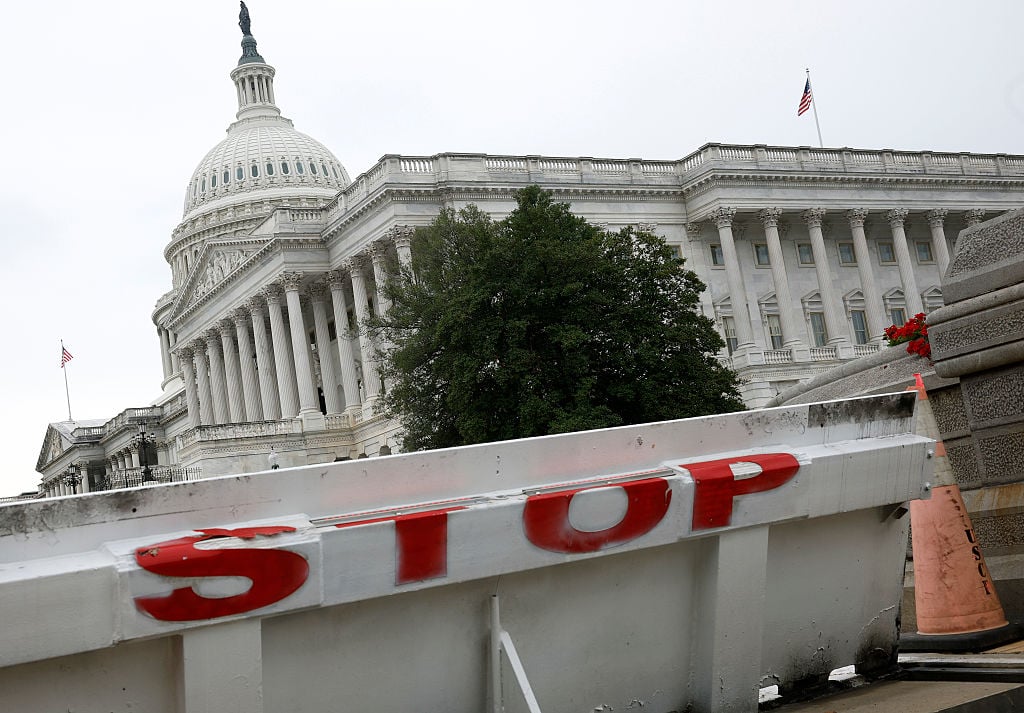The Looming Government Shutdown: Implications for Health Care and Black Americans
With a potential government shutdown looming, the political landscape in Washington is tense. The clash between Democrats and Republicans centers around a critical issue that could have grave consequences: health care. As negotiations unfold, it’s essential to consider who stands to be most affected, particularly Black Americans.
The High-Stakes Negotiation
On Monday, TheGrio was present at the White House as President Donald Trump met with congressional leaders from both parties. Despite the urgency of the situation, the meeting concluded without any resolution, leaving millions of federal workers in uncertainty. Representative Hakeem Jeffries, the Democratic leader in the House, described the discussions as “frank and direct,” but also highlighted the significant differences that remain.
Jeffries emphasized that Democrats refuse to support a partisan spending bill that compromises health care for everyday Americans. The urgency of this issue cannot be overstated, especially given its disproportionate impact on marginalized communities.
The Root of the Conflict
At the heart of the dispute is the Democrats’ demand to extend health care subsidies that were implemented under the Affordable Care Act (ACA) during the COVID-19 pandemic. These subsidies are essential for millions who might struggle to afford rising health care premiums.
Additionally, Democrats are fighting to reverse substantial Medicaid cuts made by Trump’s previous administration through policies such as the “One, Big, Beautiful Bill.” These cuts have adversely affected programs like SNAP, primarily benefiting wealthy Americans at the expense of vulnerable populations.
The Consequences of Inaction
Jeffries has characterized these cuts as a “health care crisis” that could result in millions losing their insurance, alongside the shuttering of hospitals and community health clinics. The urgency to maintain government operations is clear—without a deal, many critical services will be disrupted, and the stakes could not be higher.
While Republicans argue that funding is misappropriated to provide health care for undocumented immigrants, federal law already bars non-citizens from accessing public health care marketplaces. This misunderstanding greatly complicates already fraught negotiations.
The Impacts of a Shutdown
Should the government shut down, many federal employees will be furloughed or forced to work without pay, especially those in essential roles such as air traffic control. While safety net programs like Social Security, Medicaid, and Medicare are expected to be shielded from immediate cuts, the specter of recurrent tensions looms large.
Black Americans are particularly at risk in this scenario. They represent a disproportionately higher percentage of the federal workforce, which has already faced considerable layoffs and firings during Trump’s administration. As the Black unemployment rate has recently ascended to alarming levels—reaching 7.5%—the ramifications of a shutdown echo broader societal patterns of inequality.
Historical Context and Voices of Concern
Rep. Yvette Clarke of New York, chairwoman of the Congressional Black Caucus, reflected on the implications of past shutdowns. Notably, during a previous shutdown that lasted over a month, many federal employees, including more than 100,000 Black Americans, were affected. They were put in a precarious position, often having to work without pay while critical services were halted.
The current focus on health care adds another layer of urgency. The absence of extended subsidies and the potential for Medicaid cuts could leave countless families without necessary medical support—impacting not just individual health but entire communities.
The Health Care Crisis for Black Americans
Health care cuts, particularly to the ACA and Medicaid, are projected to impact Black Americans the hardest. Chiquita Brooks-LaSure, former administrator for the Centers for Medicare and Medicaid Services, has voiced her concerns that these cuts could result in devastating consequences across the nation.
Families could find themselves wrestling with higher premiums or even losing health coverage altogether. Brooks-LaSure framed these cuts as a direct assault on civil rights, explaining that they prioritize the interests of the wealthy over the well-being of Black families.
The Red Line for Congressional Leaders
As voiced by Congresswoman Clarke, these issues are far from abstract; they represent life-and-death decisions for families already struggling to access affordable health care. One in five Medicaid enrollees are Black, highlighting the critical intersection between race and health care access that must be addressed amidst this political turmoil.
U.S. Rep. Robin Kelly underscored the responsibility of Republicans, who currently control all branches of government, to engage in bipartisan negotiations. As issues such as maternal mortality and gun violence disproportionately affect Black communities, the urgency for effective health policies remains paramount.
A Call for Urgent Action
The impending government shutdown serves as a crucial battleground for policies that will define the health care landscape for millions. Without bipartisan cooperation, the consequences could be dire—leaving marginalized communities like Black Americans facing significant health care disparities and challenges. The stakes are high, not just for individuals, but for the integrity of health care accessibility in America.



